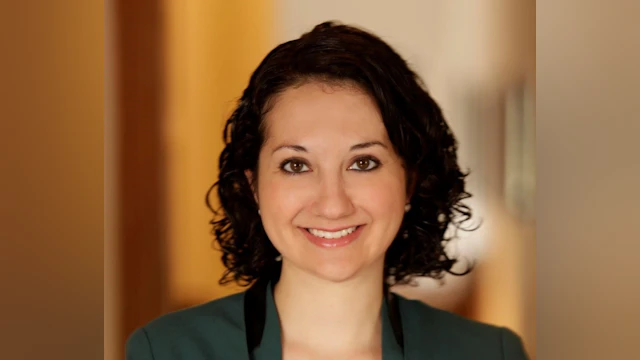Jul. 5, 2019 - About 12 years ago, as my father was unconscious in the emergency room following a serious suicide attempt, a neurology resident walked in to examine him and, upon realizing who he was, broke down in tears, saying, “I can’t...he’s larger than life!” and then ran out the door. Upon hearing this recounted later, I purportedly quipped, “Apparently not.”
The thing is, my dad really was a big deal in his field, which ironically enough, given the circumstances, was psychiatry. Growing up, I never fully understood what he did. When I was very young, I even had the mistaken impression that he worked in his car. This seemed a reasonable conclusion, considering the fact that every time he said, “I’m going to work,” he would get in his car, and then, at the end of the day, when my mother exclaimed, “Dad’s home from work!” I would see him getting out of his car.
The reality was that my father was a professor of psychiatry, and had what every academic covets: tenure, an endowed chair, and general recognition as a leading figure in the academic field of psychiatry.
His near-death experience after his suicide attempt was the first time I discovered that even hospitals have “VIP” status. During his stay, my father’s identity was masked with an alias, as his real name would have given him away to any psychiatrist — and apparently any neurologist — who walked in the room.
Many people have wondered how my parents, as two psychiatrists, could have ended up in this situation, confronting a mental health crisis on the verge of exploding, seemingly without knowing it.
Moreover, if even they couldn’t prevent such a thing, was there any hope for the rest of us?
Now, many years later, I face these questions on a near daily basis, as I work at The Jed Foundation (JED), which is dedicated to preventing suicide for our nation’s teens and young adults. At JED, we believe suicide can be prevented in many instances, if we can address key areas of knowledge, attitudes and behaviors among the general public, communities, families, and the institutions that surround and protect them.
I believe this, too, despite the fact that even expert knowledge in my family’s household was not enough to prevent a suicide attempt from my dad. Suicidal behavior is extraordinarily complex. Even people who have survived attempts will say they may not fully understand their actions.
No one outside of our immediate family knew the ways my dad had suffered over the years. How comments that hadn’t been meant as criticism sometimes seriously wounded his fragile sense of self, or how deeply he despaired over professional rejections. Things that might have seemed a minor inconvenience to most people felt like major crises to him.
To the outside world, he was a brilliant, charismatic professional, someone who truly had everything. The reality was that my dad was chronically depressed and chronically suicidal. He later told my mom he remembered developing suicidal ideation at the age of nine, and that it had never really gone away. Every day of his life, between the ages of nine and 56, my father had thought about killing himself.
Later, my mom told me that up until that point, she had been fearful every single day of their 30-plus-year marriage that my father would kill himself.
For me and my sister, it was more complicated. We were young and didn’t always get the full story.
Still, we knew something was wrong. When my mom stood in the doorway that day in 2006, shaking with her car keys in her hand and telling me, “Dad made a very serious suicide attempt, and I have to go to the hospital,” I was certainly in shock, but I wasn’t surprised. It had always felt as though something bad was going to happen; I just didn’t know what it might be.
12 years later, I still struggle to explain how this event affected me. It took me 10 years to talk about it in any detail. Even then, I downplayed it. “Well, he didn’t die,” I told others, “so it’s not like it was traumatic for me.”
The reality in the aftermath of my father’s attempt was not one of epiphanies, but of slow, quiet moments of understanding. My family came to realize we had to be open with each other about our mental health: that hiding things was not doing anyone any good and could even be dangerous. My father, in the years since his attempt, has learned to prioritize his own mental health after having neglected it for so long. He’s instilled this in our family, now, as a whole. The irony of his working in the field of psychiatry as a suicide attempt survivor himself is not lost on him. He knows the importance of his own self-care. As he always tells me, you have to put your own oxygen mask on first before you can help anyone else.
Looking back, I remember stopping in my father’s doorway soon after he had gotten out of the hospital. I was leaving to go back for my senior year of college, and was concerned about how he’d be after I left. I nonchalantly said to him, “No monkey business, okay?”
He laughed, and made me promise the same.
I still like to remind him of our little pact every once in a while. But as each year goes by, I find it less and less necessary to say. And that’s how we go on.
